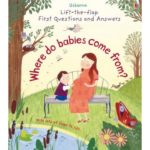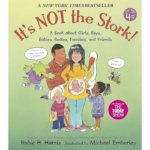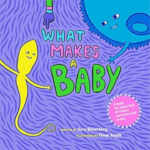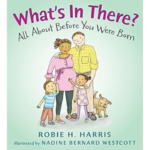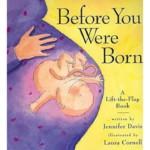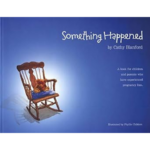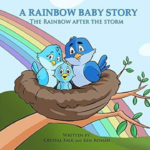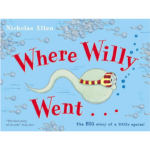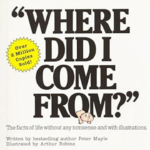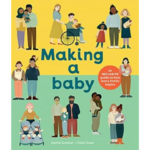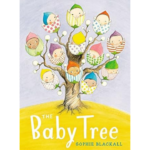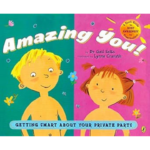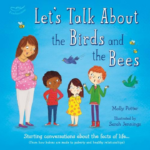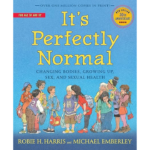
 Post Category - ParentingParenting - Post Category - 5-11 Year Olds5-11 Year Olds - Post Category - Tweens & TeensTweens & Teens
Post Category - ParentingParenting - Post Category - 5-11 Year Olds5-11 Year Olds - Post Category - Tweens & TeensTweens & TeensEnsuring your kids have a quality sex education is vital for their wellbeing. It’s not an easy topic to tackle, but here’s where to start your birds and the bees chat.
The evidence is in, according to the World Health Organisation, “high-quality sexuality education delivers positive health outcomes, with lifelong impacts.” Kids who receive quality, age-appropriate sex education are more likely to delay exploring their sexuality, and more importantly;
“when they do start having sex, it is safer when they are better informed about their sexuality, sexual health and their rights.”
That’s all well and good, but talking to your child or teenager about the birds and the bees is no easy task – even for the most relaxed and open-minded parent.
Read More: How To Prevent And Recognise Child Sexual Abuse

The Importance Of Sex Education In Hong Kong
Chances are you already know that you need to start having open conversations with your kids. While schools do the best they can, research suggests it isn’t enough, so the conversations need to also happen at home.
It might be tempting to put off talking about the inevitable, “where do babies come from,” until they are older, by that time they may have created their own patchwork of fact and myth about sex.
Sassy Mama Tip: The point about talking to children and teens about sex is to help them make informed and healthy choices when the time comes, not just with regards to sexual health but also in the way they view relationships.
Read More: Raising Resilient Hong Kong Kids By Teaching Them Happiness

Sex Education For Toddlers And Kids Under 6
Many children are introduced to sex education when they see pregnant women in their world. It could be a teacher or caregiver, or even a parent as they expect a younger sibling. Faced with a pregnant belly, young children will be interested in how they came into this world.
“They are really trying to make sense of how they belong in their family.”
At this age, young children become increasingly aware of their bodies and the differences between boys and girls. Young children are also aware that parents share a bed and will have seen them share some physical affection. Given that young children are noticing all of these things, it would be appropriate to meet their curiosity. Fill that need for information by talking to them about bodies and where babies come from in an age-appropriate way.
Sassy Mama Tips:
- Use age appropriate language and avoid misunderstandings. For example, if your young child’s word for penis is “pi-pi”, though it might also be the word for going to the toilet, it might sound confusing if daddy puts his “pi-pi” into mummy to make a baby! So keep their vocabulary and understanding in mind while explaining anything.
- While children do need to learn the correct term for parts of the anatomy, parents naturally use words that feel more comfortable when their children are small. So for example, semen might be described as a “seed”. Children’s books (see below for a list of resources) that explain the facts of life to children at this age might be a helpful source of information for you and your child to look at together.
Sex Education Books For Young Kids
Here are a selection of books specifically designed for young kids. Whether you’re looking for help explaining body parts, where babies come from or the mechanics and science of it all. There are even some beautiful books that discuss pregnancy loss and rainbow babies for parents having trouble finding the words for their little ones.
Read More: How To Understand And Cope With Pregnancy Loss

Sex Education For Primary School Kids
When children are of primary school age, their level of interest in sexual matters can vary. Their ability to vocalise their curiosity may depend on the family’s attitude towards sex. At this age, they may continue to be interested in differences between the sexes (for example, wanting to know about puberty and periods), but they might also have a greater awareness of romantic relationships. At this age, they will be learning that these can take place between same-sex as well as opposite-sex couples. Remain open and honest with your child and try not to shy away from any questions they might have.
Sex Education Books For Primary School Kids
At this age kids are better able to understand more details. There are books here covering everything from body parts to intercourse, and all the different ways a family can be made.
Read More: What It’s Like To Raise A Child In A Same Sex Family
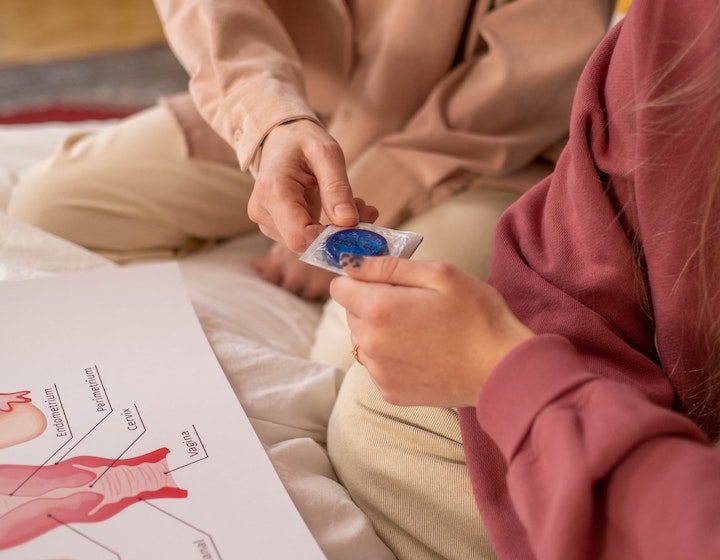
Talking To Tweens And Teens About Sex
Most young adolescents learn about puberty and reproduction at school or in the media (the internet, films, books or TV) and friends are also sources of (mis)information. When puberty hits, hormones rage and an interest in all things sex develops. Adolescents may start masturbating.
As adolescents become more adept at romantic relationships, they become increasingly sexually active. In adolescence, the individual’s gender and sexual identity continue to develop particularly in the context of their peer group. Teens start to feel more sure of their sexual orientation and can be particularly vulnerable to mental health issues when their sexual orientation isn’t accepted within their family and social circles.
“It may be the hardest time to begin talking to your teen about sex if you haven’t started earlier.”
Apart from the embarrassment factor, adolescents become more independent and rely less and less on parents for information and emotional support, turning to their peers for both. So learning from an early age that it is ok to talk about sex with your parents is very important. Perhaps the biggest role a parent can take at this stage is in helping to dispel myths about sex such as how to avoid getting pregnant and STDs.
As with all aspects of a teenager’s life, part of the growing up process is to learn about taking responsibility for yourself. Whilst adolescents may be able to take the necessary physical precautions, they need to learn from you that sex is only one part of real relationships and that emotional responsibility in relationships is of equal, if not greater, importance.
Despite their eagerness to move away from you, teenagers need to have a sense that you will still be there for them no matter what in their chaotic and ever-changing lives.
Sex Education Books For Teens
Your teens need facts and to be spoken to on their level. We love that these books don’t beat around the bush, and cover everything from sexuality and gender identity to conversations around consent. There’s even a book of true stories about losing your virginity.
Read More: How To Get Birth Control In Hong Kong — Contraceptive Pill, IUD And Morning After Pill
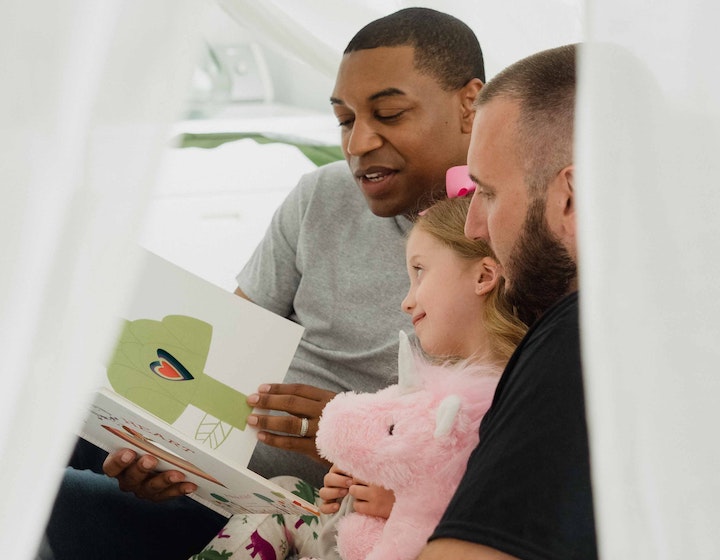
Do’s And Don’ts For Talking To Your Kids About Sex
While each family is different there are common threads that you can weave in order to talk to children about sex in a way that works for everyone involved.
Timing Your Sex Education
Do — Try to be open to talking about issues as and when they arise, for example when your child raises a question out of curiosity. If it’s not an appropriate time and place, come back to it later in the day when you have a moment alone with your child or teen.
Don’t — Book in an excruciating “facts of life” chat. The anxiety and embarrassment of such a setup is unlikely to help your child or teen understand the information you are trying to convey.
Keeping Your Cool
Do — Answer in a relaxed and comfortable way. If you are very anxious, buy yourself some time to talk to friends or your partner and think about or rehearse what you are going to say. It may be difficult to be completely relaxed at first but it will get easier with practice.
Don’t — Baulk at the question. It’s ok to react with surprise but take a moment to consider it from their (innocent) perspective and think about what they need to know and why they are asking.
Sassy Mama Tip: Remember your child picks up on the way you say things as well as what you say. Your anxiety might convey that talking about sex, or even sex itself, is something to feel frightened or embarrassed about.
What To Say When You Talk To Your Kids About Sex
Do — Keep it short, sweet and simple. Try to answer the question that has been asked directly, without getting too far off track. You can check in with them what they mean and ask how much they already know. Then tailor your answer according to their needs.
Don’t — Overwhelm your kids with too much information (which may come from your own nerves!).
Leave The Door Open For Further Discussion
Do — Let them know that you value them asking questions, and that they can always come to you.
Do — Be approachable and encouraging with them from a young age. This will help them grow up with trust and the ability to confide in you when there are problems.

More Sex Education Resources For Parents
Finally, if you’re looking for more specific sex education advice, these parenting books are a great place to start.
Editor’s note: This article was most recently updated in October 2023. Thanks to Liz Fletcher, Roxanne Dowell and Alex Purcell Garcia for their contributions.
 View All
View All











 View All
View All



 View All
View All

 View All
View All




